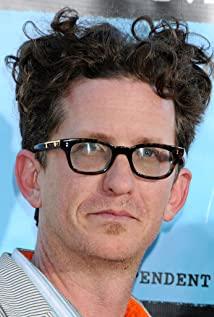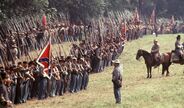-
Rey 2022-01-13 08:02:24
When your hometown rebels against the motherland
The War of Independence and the Civil War are the two most important wars in the history of the United States. The War of Independence gave birth to the United States, and the Civil War laid the foundation for the United States to become a superpower. "The Battle of Gettysburg" reflects the Civil...
-
Guillermo 2022-01-13 08:02:24
Gettysburg
There is no clear position, just like Homer narrating the epic, empathizing the hero's tragic destiny. This is a modern version of the Greek epic, and both sides of the war feel that they are just and noble. The North thinks they are fighting to eliminate slavery, the South thinks they are fighting...

Kieran Mulroney
-
Harmony 2022-03-27 09:01:15
The Civil War turned out to be completely different from what was imagined. . . Heroes and honor, blood and sacrifice. The ambitions of the North will be won, and the ambitions of the South are unpaid, both are worthy of admiration. The magnificent music in the opening paragraph will always linger in my ears.
-
Natalia 2022-03-25 09:01:16
It's just a general recommendation. The reason for watching this film is purely because there is such a book in the list of books recommended by Fortune Magazine. In it, I did see some management arts (the so-called US military is the largest source of American entrepreneurs), such as the treatment of deserters. , the handling of the overstepping complaint, the handling of the mistakes of the subordinates, the handling of the unfavorable situation, etc. However, as far as the film itself is concerned, except for the music to be rated 5 stars, the performance of General Li's war art is very lacking, As the last large-scale queuing and shooting war in the history of the world, the scene scheduling is also too focused on small-scale shooting, and the overall display of the battle is much inferior to the three major domestic battle films.
Related articles
-
General Robert E. Lee: What day is it now, Major?
Maj. Walter H. Taylor: [takes out his pocket watch] It's long after midnight, sir. It's already Friday.
General Robert E. Lee: Friday, July the 3rd?
Maj. Walter H. Taylor: Yes, sir.
General Robert E. Lee: Then tomorrow is the Fourth of July.
Maj. Walter H. Taylor: Sir?
General Robert E. Lee: Independence Day?
Maj. Walter H. Taylor: Huh. I'd quite forgotten.
General Robert E. Lee: The good Lord has a sense of humor. I'm very sorry to keep you up so late.
Maj. Walter H. Taylor: It is my pleasure, sir.
General Robert E. Lee: We should have a larger staff.
Maj. Walter H. Taylor: I would be insulted, sir.
-
Brigadier General Lewis A. Armistead: [Armistead sees a young soldier cowering behind a fence on the Emmitsburg Road during Pickett's Charge and stoops down next to him] Come on, boy, come on! What'll you think of yourself tomorrow?
[he stands back up]
Brigadier General Lewis A. Armistead: Virginians! Virginians!
[he takes off his hat and impales it on his sword, then holds it aloft]
Brigadier General Lewis A. Armistead: With me! Who will come with me?
[he charges ahead, his brigade hot on his heels]













